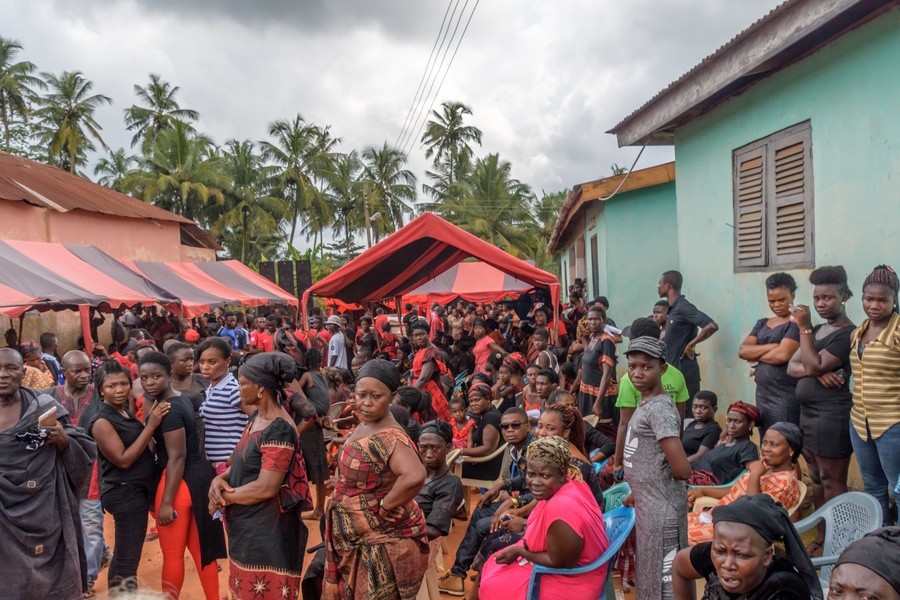In West Africa, funerals are events that serve as a profound celebration of life, culture, and heritage. The detailed rituals and gloomy ceremonies reflect the region's deep respect for the deceased and the communal spirit of the people. In the western part of Africa, countries like Ghana, Togo, Benin, Côte d'Ivoire, and Nigeria unfold their traditional funerals in four different stages: the wake, the burial, the celebration, and the post-funeral rites with each stage characterised with symbolism and meaning which offers an insight into the rich culture of West Africa.
Join us in this article as we navigate through the four stages of organising traditional funerals in West Africa.
The Wake: Honouring the Departed
The journey begins with the wake. In this stage, family and friends gather to pay their respects to the deceased person. In Ghana and Nigeria, this stage, known as the “lying in state,” allows individuals an opportunity to share their condolences with the deceased's family and also have a look at the displayed body of the deceased in a specially decorated casket, which often reflects the deceased’s life and achievements. In other countries like Togo and Benin, the wake serves as a period for communal prayer, drumming, and singing, which creates an atmosphere of reverence and reflection. This stage serves as an opportunity for loved ones to offer condolences, share stories, and provide emotional support to the bereaved family.
The Burial: Returning to the Earth
The second step is the burial, a solemn yet ceremonious event. In many cultures within Côte d'Ivoire and Nigeria, the burial is preceded by elaborate processions featuring traditional music and dance. The body is often adorned in fine garments, symbolising the honour and respect accorded to the departed. The burial site, frequently within the family compound or a sacred ancestral ground, underscores the belief in the continuing presence of ancestors within the community. This act of returning to the earth is both a spiritual and physical homecoming.
The Celebration: A Life Remembered
Following the burial, the mood transitions from a dark and melancholic one to vibrant celebrations. In this stage, where “funeral parties” are held, the funeral features lively traditional music, dancing, and feasting. In Togo and Benin, traditional masquerades and theatrical performances celebrate the life and legacy of the deceased. The celebration serves to honour the departed's life journey, and affirm the continuity of life within the community.
The Post-Funeral Rites: Ensuring Spiritual Harmony
The final stage, the post-funeral rites, ensures the spiritual well-being of both the deceased and the living. Nigerian traditions often involve “second burials” or memorial services months or even years after the initial funeral, reinforcing the enduring connection between the living and the dead. These rites help to integrate the spirit of the departed into the ancestral realm, ensuring their peaceful transition and ongoing protection of the family.
Traditional funerals in West Africa serves as a testament to the region’s deep-rooted respect for the cycle of life and death. Each stage, from the wake to the post-funeral rites, weaves together elements of spirituality, community, and celebration. In Ghana, Togo, Benin, Côte d'Ivoire, and Nigeria, these rituals not only honour the deceased but also reinforce the cultural values and collective memory of the people. These profound customs and traditions promotes a deeper appreciation for the rich cultures that define West Africa’s approach to honouring the dead.

